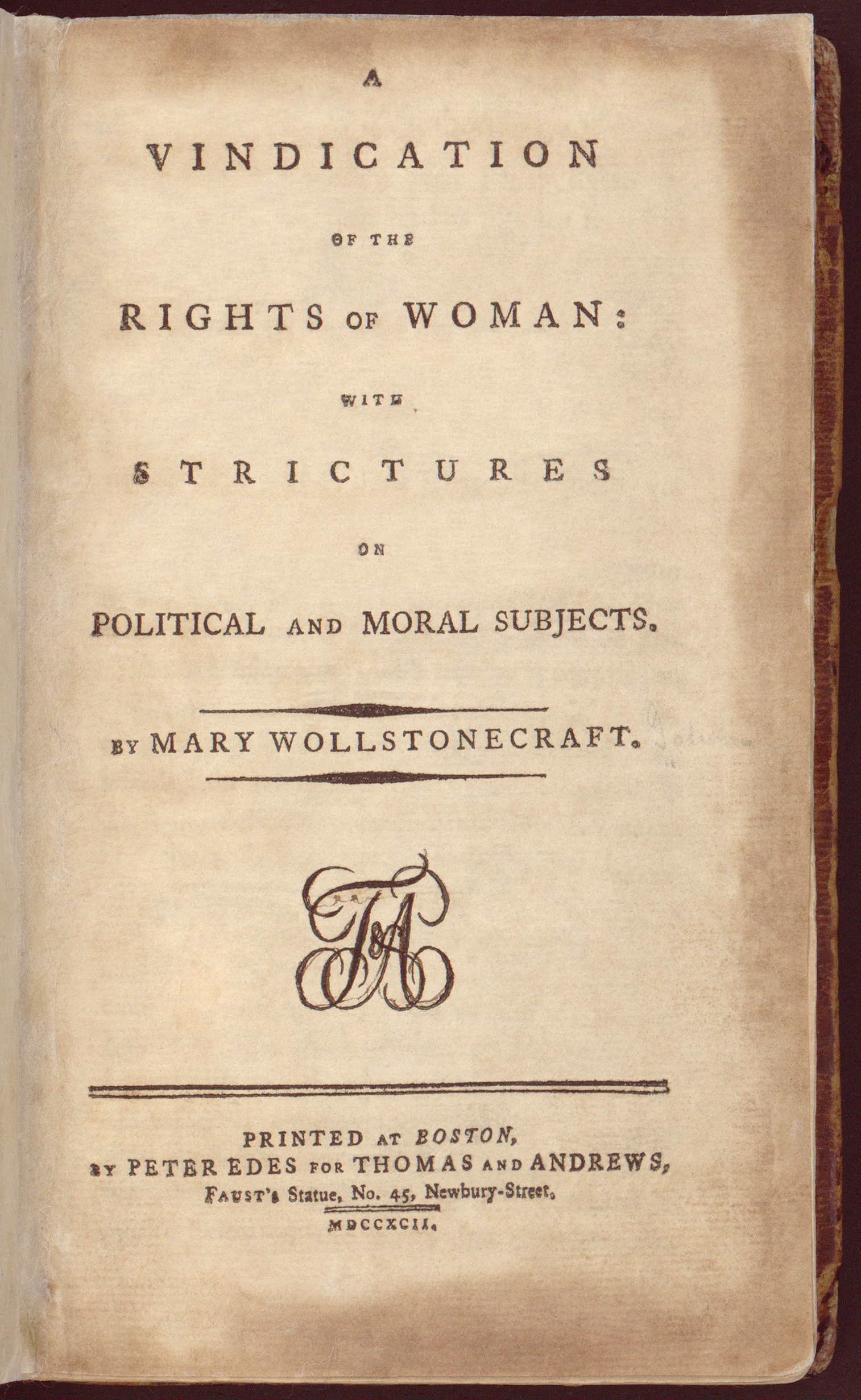History of Feminism - 18th century: the Age of Enlightenment
The Age of Enlightenment was characterized by secular intellectual reasoning and a flowering of philosophical writing. Many Enlightenment philosophers defended the rights of women, including Jeremy Bentham (1781), Marquis de Condorcet (1790), and, perhaps most notably, Mary Wollstonecraft (1792).
Declaration of the Rights of Woman
The Declaration of the Rights of Woman and the Female Citizen (French: Déclaration des droits de la femme et de la citoyenne), also known as the Declaration of the Rights of Woman, was written in 1791 by French activist, feminist, and playwright Olympe de Gougesin response to the Declaration of the Rights of Man and of the Citizen. By publishing this document, de Gouges hoped to expose the failures of the French Revolution in the recognition of sex equality, but failed to create any lasting impact on the direction of the Revolution. While the Declaration did not immediately accomplish its goals, it set a precedent for a manner in which later feminists could satirize their governments for their failures in equality
A Vindication of the Rights of Woman
A Vindication of the Rights of Woman: with Strictures on Political and Moral Subjects (1792), written by the 18th-century British feminist Mary Wollstonecraft, is one of the earliest works of feminist philosophy. In it, Wollstonecraft responds to those educational and political theorists of the 18th century who did not believe women should have an education. She argues that women ought to have an education commensurate with their position in society, claiming that women are essential to the nation because they educate its children and because they could be "companions" to their husbands, rather than mere wives. Instead of viewing women as ornaments to society or property to be traded in marriage, Wollstonecraft maintains that they are human beings deserving of the same fundamental rights as men.






Post a Comment